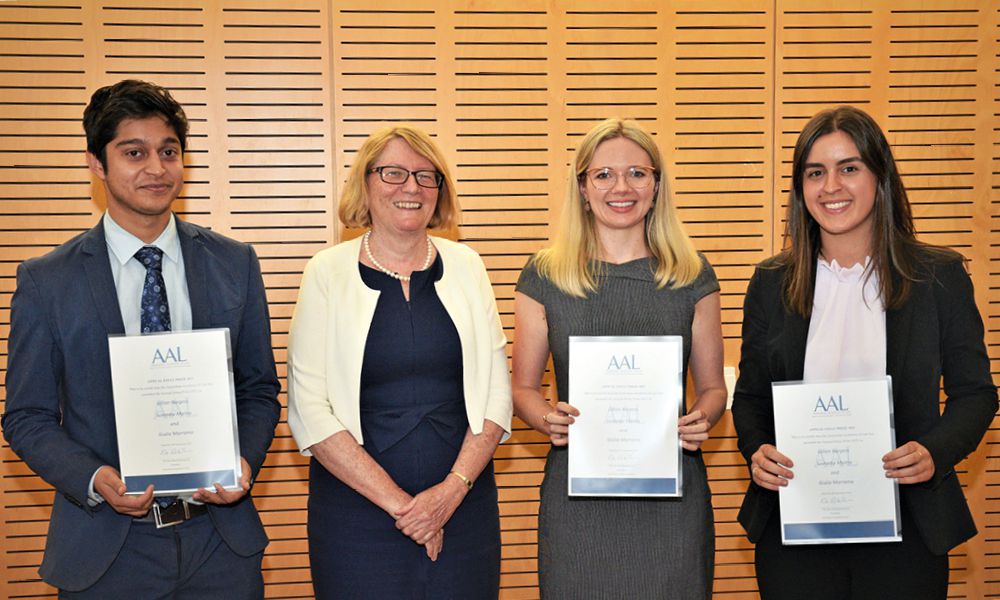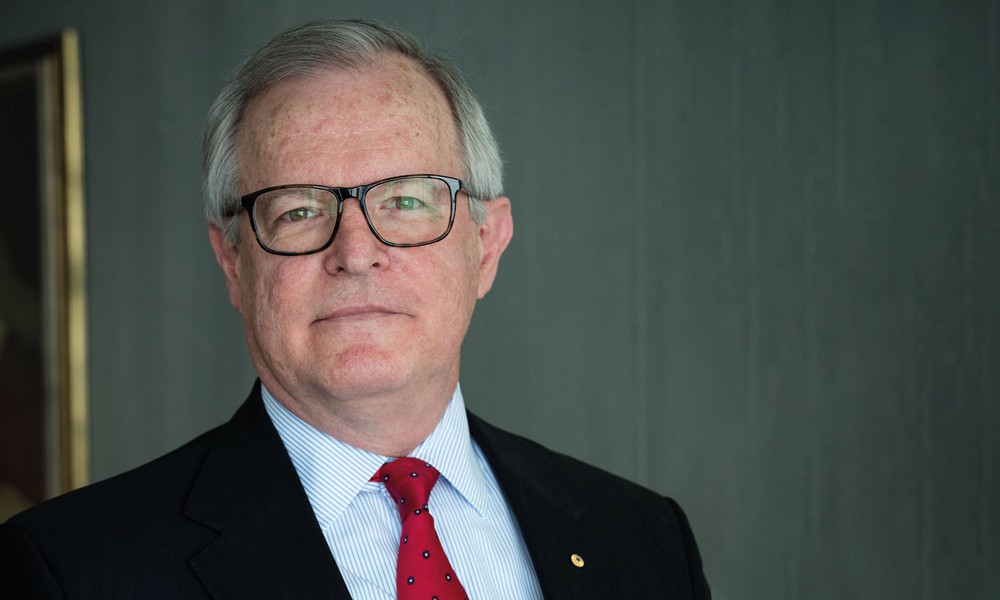Three young Brisbane judges’ associates took centre stage before Queensland’s top jurists to collect their national prize for an essay they penned to help resolve issues confronting First Nations peoples.
Queensland Supreme Court Justice Catherine Holmes AC on Monday (13 Dec) presented Lillian Burgess, Suvradip Maitra and Giulia Marrama with their awards as winners of the Australian Academy of Law’s 2021 Essay Competition.
The trio was honoured for their ground-breaking 10,000 word piece on ‘movement lawyering’ which addressed a myriad of issues confronting First Nations Peoples related to interactions with the criminal justice system, native title and intellectual property/traditional knowledge protection.
The authors, who were aware that their views might not reflect those of the First Nations peoples of Australia, argued that the problems facing First Nations peoples required a unique legal response which goes beyond the traditional role of the lawyer.
“Movement lawyering is a new theory but an old practice that involves lawyers aligning with a movement and contributing their uniquely legal skills for the cause,” the trio wrote.
“It means lawyers must commit to proactive community engagement and expand their work to incorporate the roles of translators, facilitators, educators and journalists.”
The ceremony, held in the Chief Justice’s designated court in QEII Courts of Law, heard from speakers including Australian Academy of Law President Alan Robertson, Justice Peter Applegarth and Chief Justice Holmes who spoke of how proud both she and fellow judges were of the group’s work.
Upon completion of speeches, Chief Justice Holmes stepped away from the bench and invited Ms Burgess, Mr Maitra and Ms Marrama to step up and share details on the genesis, execution, reasoning and completion of their prize-winning essay.
For almost 15-minutes the three held a packed gallery – including members of the judiciary such as Justices Peter Applegarth AM, Debra Mullins AO, David Boddice, Peter Callaghan and Philip McMurdo, enthralled as they each took turns speaking to their essay. Other members of the judiciary, fellow judges’ associates and friends and family of the three watched the ceremony either in person or via videolink.
Ms Marrama graduated with a Bachelor of Laws (Hons) from Queensland University of Technology, while Ms Burgess and Mr Maitra completed a Bachelor of Science/LLB (Hons) at the University of Queensland.
The three are associates to Court of Appeal Justices John Bond (Ms Marrama), Justice McMurdo (Ms Burgess) and Justice Hugh Fraser (Mr Maitra).
The essay judging panel was chaired by former High Court judge the Honourable William Gummow AC. He was joined by Professor Gabrielle Appleby and Tony McAvoy SC, Australia’s first Indigenous silk.
The judges said they were impressed by all the (anonymised) submissions, but considered that one essay in particular had the edge.
“The authors undertook a rich analysis of the role that movement lawyering has played and can play in the furthering of First Nations interests,” they said.
“Incorporating new research on movement lawyering, as well as deeply engaging with the scholarship, it was in equal parts academically rigorous and practically focused.”
This year’s competition asked entrants to address the question, ‘Outstanding fundamental issues for First Nations Peoples in Australia: what can lawyers contribute to the current debates and their resolution?’









Share this article